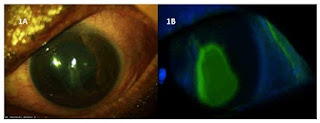A foreign body is any abnormal substance or object that does not belong to the body (eye). The incidence of foreign body in the eye is high especially in the industrial towns. It can occur at any age and in both genders. It affects the eye by mechanical effects, by introduction of infection or by specific reaction.
Journal and Conferences on Ophthalmology
Tuesday, 8 August 2017
Monday, 7 August 2017
Novasorb Cationic Nanoemulsion and Latanoprost
Glaucoma is the leading cause of blindness all over the world after cataract blindness. In 2010, worldwide 60.5 million people were expected to have OAG (Open angle glaucoma) and ACG (Angle closure glaucoma), increasing to 79.6 million by 2020, and of these, 74% will have OAG1. Asians represent 47% of those with all glaucoma and 87% of those with ACG1. 4.5 million people with OAG and 3.9 million people with ACG were expected to have bilateral blindness in 2010, rising to 5.9 and 5.3 million people in 2020, respectively.
Wednesday, 2 August 2017
Ocular Biometry in Patients with Primary Open Angle Glaucoma
Glaucoma is the leading cause of blindness all over the world after cataract blindness. In 2010, worldwide 60.5 million people were expected to have OAG (Open angle glaucoma) and ACG (Angle closure glaucoma), increasing to 79.6 million by 2020, and of these, 74% will have OAG1. Asians represent 47% of those with all glaucoma and 87% of those with ACG1. 4.5 million people with OAG and 3.9 million people with ACG were expected to have bilateral blindness in 2010, rising to 5.9 and 5.3 million people in 2020, respectively.
Monday, 31 July 2017
Autologous Serum Eye Drop in Refractory Neurotrophic Corneal Ulcer: A Case Report
To report a case of refractive neurotrophic corneal ulcer, treated successfully with 20% autologous serum eye drops. A 20 year old male presented with redness and foreign body sensation since three months associated with photophobia and progressive diminution of vision of both the eyes, right eye more than left, since 2 months. At presentation, the best corrected visual acuity in the right eye was 1/60 and left 6/12.
Tuesday, 25 July 2017
Visual Eyes Optometry
In visual eye optometry comprehensive eye examination is done. It deals with visions sharpness, eye and vision problems. Maintenance of good eye health is explained by visual eyes optometry.
Manuscript submission: Authors are requested to submit manuscripts at https://www.editorialmanager.com/lifesciences/ or send as an e-mail attachment to the Editorial Office at optometry@clinicalmedicaljournals.com
Monday, 24 July 2017
A rare case of Cornelia de Lange syndrome with Glaucoma
An eight months old baby was presented with no tolerance to bright light, chronic watering and discharge from both eyes since birth. There was no family history or consanguinity. The child presented strange facial features of microcephaly, synophrys, smooth philtrum, thin upper lip and hirsutism. Close examination of the eyes presented myopic astigmatism and abnormal intraocular pressure. The child underwent trabeculotomy and the case was diagnosed Cornelia de Lange syndrome. It is a multiple congenital anomaly syndrome with intrauterine growth retardation, developmental delay, mental retardation, distinctive facial features, respiratory and feeding difficulties, gastroesophageal dysfunction, and cardiac septal defects. Cornelia de Lange syndrome occurs due to the mutation of at least five genes. However, Cornelia de Lange syndrome with congenital glaucoma is a very rare case.
Tuesday, 18 July 2017
The Incidence of Rhegmatogenous Retinal Detachment in Kumamoto, Japan between 2009 and 2011
Rhegmatogenous retinal detachment (RRD) is a blinding disease characterized by the separation of the inner neurosensory retina from the outer retinal pigment epithelium due to a break in the retina. Fluid accumulates in the subretinal space through the break in the retina, and the decreasing function of the neurosensory retina leads to vision loss.
Previous studies have reported that the annual incidence of RRD was 7.98-18.2 per 100,000 people. Because the incidence of RRD is influenced by demographic characteristics, severe myopia, and history of cataract surgery, the incidence varies widely by region and age group. In Japan, a previous retrospective study reported that the incidence of RRD in Kumamoto Prefecture was 10.4 per 100,000 people (9.6 in males, 11.2 in females). However, this study was conducted in 1990, and the demographic characteristics in Kumamoto have changed during the last 20 years. To date, some studies have reported the incidence of RRD over a 20-year period; however, no studies have compared the 20-year data with the data from the same region 20 years previously in an Asian population.
Subscribe to:
Comments (Atom)






